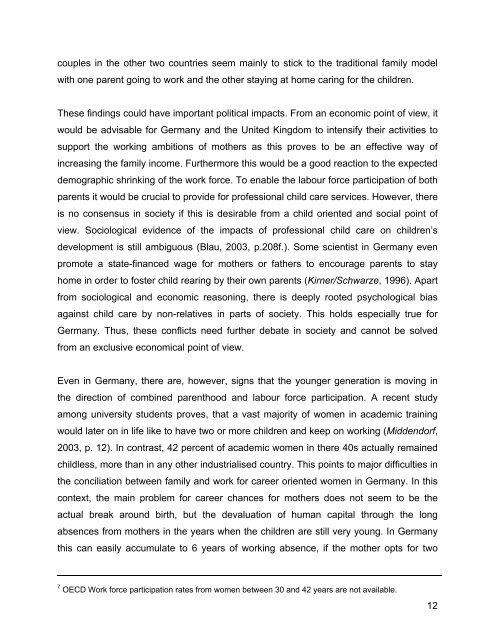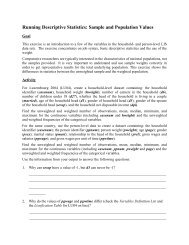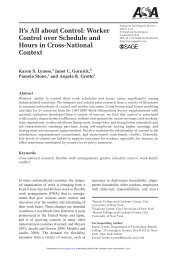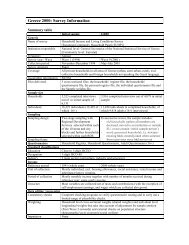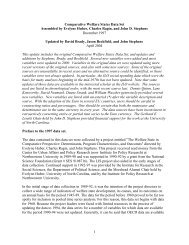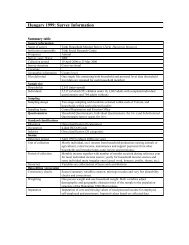Nicola Dickmann: - LIS
Nicola Dickmann: - LIS
Nicola Dickmann: - LIS
Create successful ePaper yourself
Turn your PDF publications into a flip-book with our unique Google optimized e-Paper software.
couples in the other two countries seem mainly to stick to the traditional family modelwith one parent going to work and the other staying at home caring for the children.These findings could have important political impacts. From an economic point of view, itwould be advisable for Germany and the United Kingdom to intensify their activities tosupport the working ambitions of mothers as this proves to be an effective way ofincreasing the family income. Furthermore this would be a good reaction to the expecteddemographic shrinking of the work force. To enable the labour force participation of bothparents it would be crucial to provide for professional child care services. However, thereis no consensus in society if this is desirable from a child oriented and social point ofview. Sociological evidence of the impacts of professional child care on children’sdevelopment is still ambiguous (Blau, 2003, p.208f.). Some scientist in Germany evenpromote a state-financed wage for mothers or fathers to encourage parents to stayhome in order to foster child rearing by their own parents (Kirner/Schwarze, 1996). Apartfrom sociological and economic reasoning, there is deeply rooted psychological biasagainst child care by non-relatives in parts of society. This holds especially true forGermany. Thus, these conflicts need further debate in society and cannot be solvedfrom an exclusive economical point of view.Even in Germany, there are, however, signs that the younger generation is moving inthe direction of combined parenthood and labour force participation. A recent studyamong university students proves, that a vast majority of women in academic trainingwould later on in life like to have two or more children and keep on working (Middendorf,2003, p. 12). In contrast, 42 percent of academic women in there 40s actually remainedchildless, more than in any other industrialised country. This points to major difficulties inthe conciliation between family and work for career oriented women in Germany. In thiscontext, the main problem for career chances for mothers does not seem to be theactual break around birth, but the devaluation of human capital through the longabsences from mothers in the years when the children are still very young. In Germanythis can easily accumulate to 6 years of working absence, if the mother opts for two7 OECD Work force participation rates from women between 30 and 42 years are not available.12


